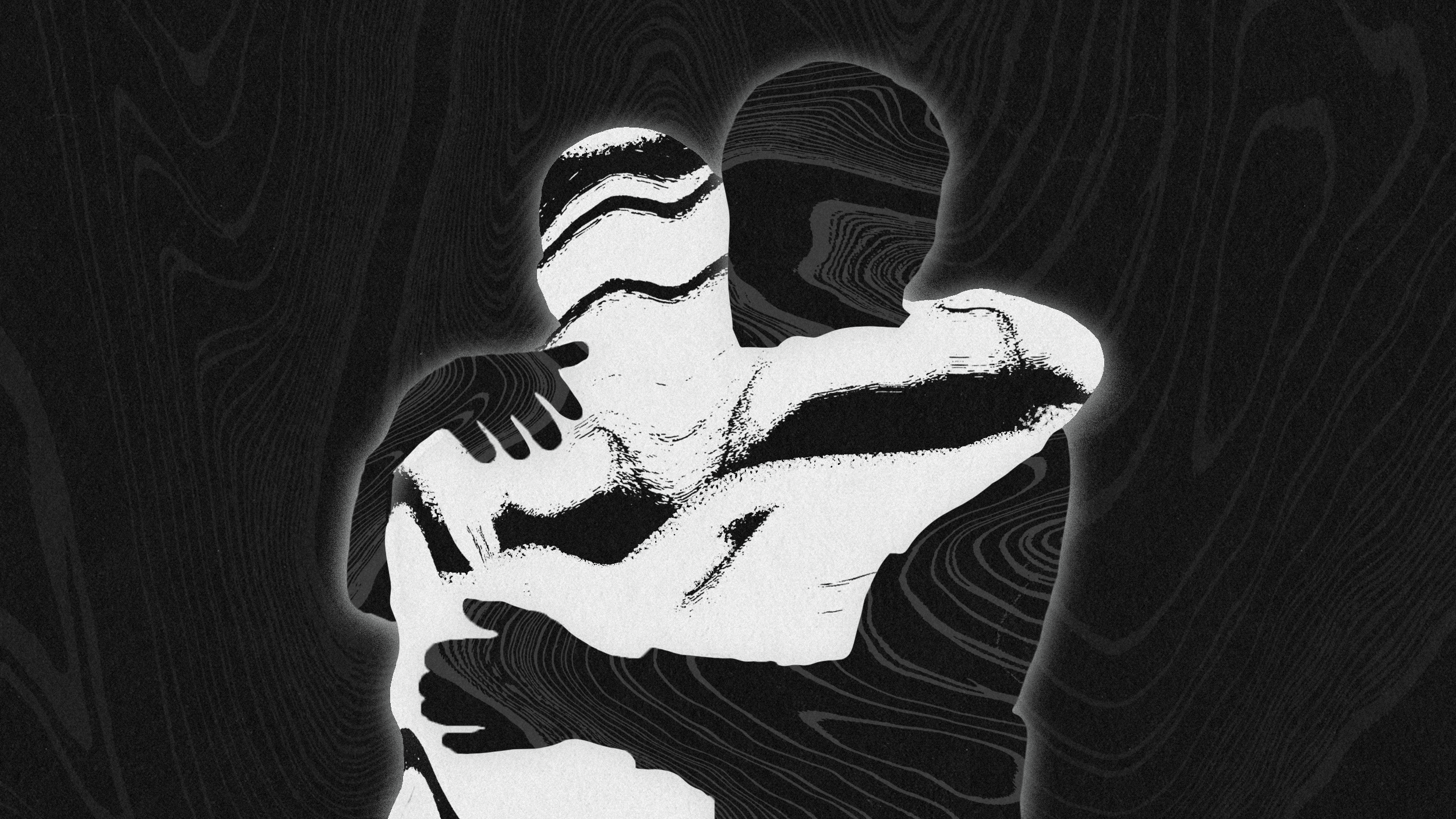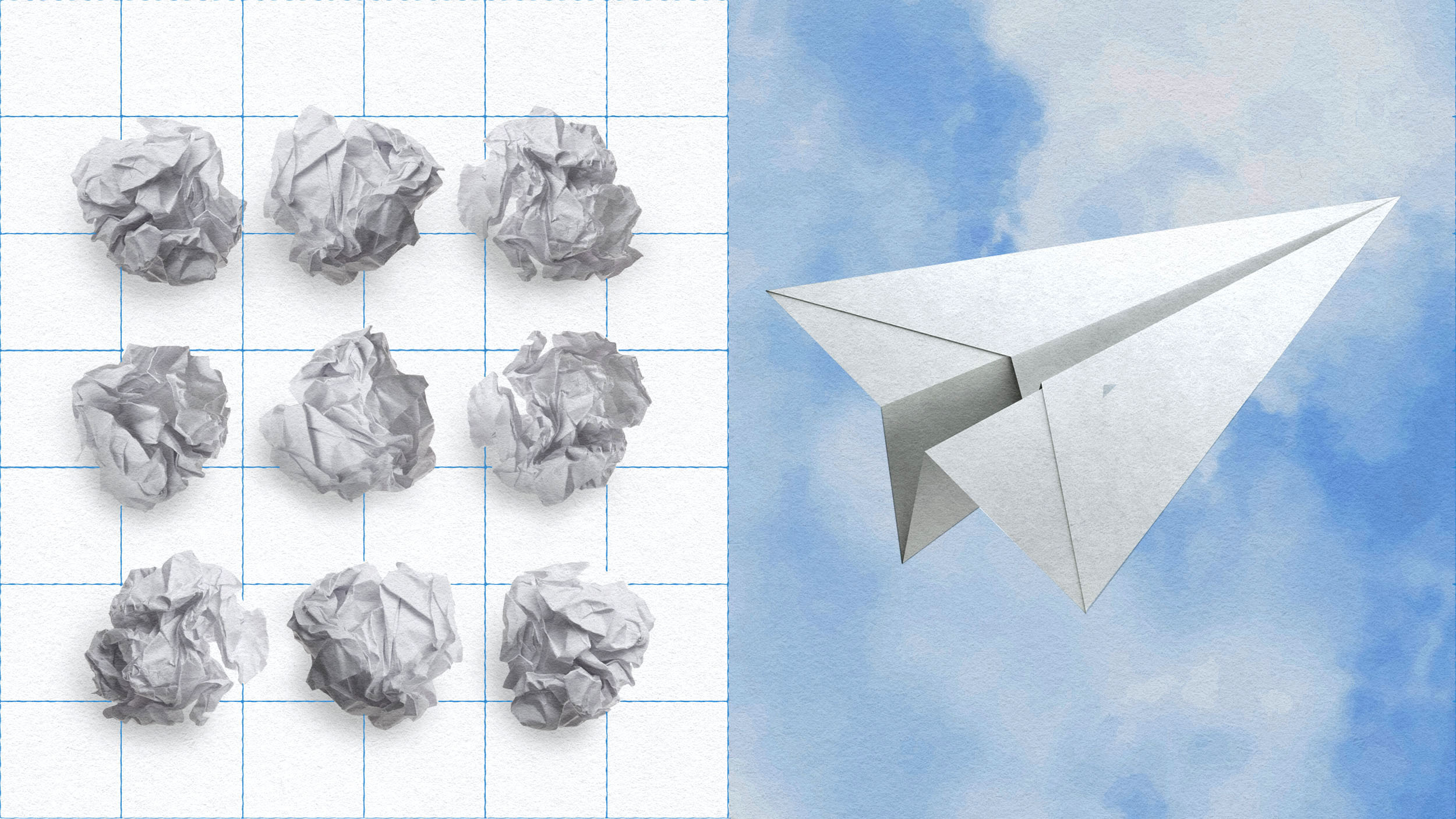How the “defiance domino effect” can improve your life and transform society

- Societies tend to associate defiance with rudeness and disorder.
- But defiance isn’t about boldly challenging others; it’s about acting according to your values when faced with the pressure to do otherwise.
- Values-based defiance is a skill that can be developed through daily practice in small moments.
On January 28, 1986, the space shuttle Challenger exploded over the Atlantic Ocean mere seconds after launching from Cape Canaveral. All seven crew members perished. An investigation later revealed the explosion was caused by faulty O-rings, rubber gaskets that sealed joints inside the rocket boosters. Due to the cold weather preceding the launch, the O-rings became compromised, leading exhaust gas to escape from the booster and ignite.
If only someone had known, the launch could have been postponed and disaster avoided. Except someone did know — several people, in fact.
Engineers at Morton Thiokol, an aerospace company NASA contracted to help build the rocket boosters, worried that the O-rings would lose resiliency in the forecasted freeze, so the company officially recommended that NASA hold off. Unfortunately, the O-ring safety data was inconclusive at the time, and NASA had grown overconfident and complacent about the space shuttle’s risk analysis. Under mounting pressure, Morton Thiokol complied and, despite their engineers’ warning, withdrew their concerns.
Sunita Sah, an organizational psychologist and associate professor at Cornell, recounts this story in her new book, Defy, to illustrate the everyday pressure we feel to comply even when we believe an action or decision to be unwise or immoral. This can push us to often err on the side of compliance, and the consequences of such obedience can be devastating.
Big Think recently spoke with Sah to discuss what we get wrong about defiance, why it can be such a powerful stance, and how we can learn to bring more defiance into our lives.
Big Think: You write in your book that we’re raised to view compliance as good and defiance as bad, but you have a different take. What is it?
Sah: Once, when I was young, I asked my dad what my name meant, and he said in Sanskrit Sunita means “good.” I mostly lived up to that. I did what I was told, got up when I was told to, and even had my hair cut the way my parents wanted. These were the messages I received, not just from my parents but also teachers: be good, be polite, don’t question authority, don’t make a scene.
[But] I was fascinated by people who could defy. After studying influence, authority, and why people either comply or defy, I found problems with the level of compliance we have. For example, a study found that only one in 10 healthcare workers, most of them nurses, felt comfortable speaking up when they saw a colleague making an error or taking a shortcut. These could be life-and-death situations where we want people to speak up.
I came to the realization that we need a new definition for defiance. The Oxford English Dictionary defines defy as “to challenge the power of another person boldly and openly.” Now, I was brought up in England, so I’m not usually one to disagree with them, but my definition of defiance is “to act according to your true values when there is pressure to do so otherwise.”
Big Think: In defense of compliance, it serves a purpose. It can keep us safe. How should we understand finding the balance between compliance and defiance?
Sah: I’m proposing “values-based defiance” because what I’ve found is that there’s often a gap between who we think we are and what we do. We say integrity, benevolence, and compassion are important, yet we don’t always act like they are. We can be compliant in ways that impinge on those values.
We want to consider: Does the situation go against our values? That’s the key question. If it does, if it’s something that you would not feel comfortable with, then that is the moment to defy.
There are times we decide to comply because it isn’t safe or effective to defy. I use the phrase “conscious compliance” to reflect those moments. You need the freedom to say no because if you don’t have it, you may comply, but you don’t consent. [In this view], compliance is going along with something that is externally imposed on you by another person or a system. It’s not coming from within.
There are situations where you want to defy, but you go along with it. Maybe the costs are too great, the benefits too meager, or the situation is dangerous. We all have to do that at times, even our defiant heroes like Rosa Parks. How many times did she comply with the segregation laws? A lot, but there comes a moment when we decide now is the time to defy. It’s figuring out when that time is.

Big Think: Our culture has a widespread caricature of defiance — the angry, rabble-rousing, fist-in-the-air kind. Do you think this cliché bears on our willingness to be defiant?
Sah: I think it does. We get socialized to think that defiance is loud, bold, angry, and even violent. [We can also] think about it in a Rosa Parks way — as being heroic and superhuman. Both of those are wrong. Defiance is simply living by your values.
You don’t have to be a superhero or have a strong personality or be larger than life. You don’t even have to be brave. Sometimes you can be motivated by fear of what happens if you don’t defy. We can all defy in our unique way.
I always had a self-concept of being a compliant person, and then people showed me things I did that could be viewed as defiant. [For instance], once a job candidate came to Cornell, and I was walking her to her next appointment when she asked me, “How do you break all the rules?” I was like, “What are you talking about?” She mentioned how I publish in medical and psychology and law journals as well as management ones.
Now, in business school, we’re told to only publish in management journals, but it didn’t matter to me. I wanted to publish my work in the places that would have the most impact, and I knew that certain papers would have more impact in medical or psychology journals.
So, there are different ways to defy. People probably have their own ways that they haven’t even registered as defiant.
Big Think: In what situations should we be more defiant?
Sah: There are many places where we comply and we shouldn’t. Situations where people feel regret afterward. For example, we can almost predict that at this or that meeting, a certain person will say something offensive or suggest excluding someone that we shouldn’t. They’ve said it so many times before, and if we don’t speak up, it will be harmful to people.
That’s a great place to start because anticipation enables defiance. If something catches you off guard, your default reaction is to be compliant. But if you anticipate those common situations, you can start visualizing and practicing. You can come up with this action plan and practice role-playing it. That way, you get used to hearing and saying the words for when the moment arises.
There is a powerful quote that I like to use because it really brings this home. It is often attributed to the Greek poet Archilochus: “Under duress, we don’t rise to the level of our expectations. We fall to the level of our training.”
This element of defiance is a skill. It’s not a personality trait. We need to learn the skill and practice it every single day — even in those smaller moments of speaking up.
“Does the situation go against our values? That’s the key question. If it does, if it’s something that you would not feel comfortable with, then that is the moment to defy.”
Sunita Sah
Big Think: Imagine more people took on the responsibility of defiance. What would you like to see happen as a result of that shift?
Sah: There are three main things. First, I’m focused on the individual decision to defy. When you defy, it transforms you because you can be more yourself. You’re more authentic. You have a more joyful, honest life. That fascinates me as a psychologist.
[The second thing] is what I call the “defiance domino effect.” This is how defiance transforms the people who observe it.
One of my earliest memories of defiance is of my mother. She’s petite — 4’10” at most — but one day we were stopped on the street by a group of teenage boys. They blocked our path and told us to “go back home.” I grabbed my mother’s arm and wanted to look at the ground and move past them as quickly as possible.
But my mother put her hand on her hip, looked at those boys directly, and said, “What do you mean by that?” They didn’t know what to say, and she started telling them off, and one of them whispered to the other, “Let’s go,” and they dispersed.
That moment affected me. It changed how I thought about defiance, and what I would like to see in the world on a larger scale. Society is built on all of these smaller moments, and I want to see a society where one of the teens would’ve spoken up against his peers so my immigrant mother wouldn’t have to. That’s the type of social change that I would like to see in the world — one where every individual makes a difference.
[The final thing] is setting up systems, workplaces, institutions, and organizations that give us the freedom to defy. Too often, many of our systems and workplaces want us to comply, to sign on the dotted line and not have a choice. America is supposed to be the land of the free, so give us the freedom and the right to say no and set up the systems that enable us to do that.
Big Think: Is there a final message you’d like to leave our readers with?
Sah: There’s this quote from C.P. Snow: “When you think of the long and gloomy history of man, you will find far more hideous crimes have been committed in the name of obedience than have ever been committed in the name of rebellion.”
That’s a powerful [statement] to think about. Why do we have such a negative connotation of defiance and such a positive framing for obedience when that is when the worst crimes can be committed?
Discovering your true “yes” and your true “no” is a way of understanding yourself. It’s a necessary step in discovering your own voice.





